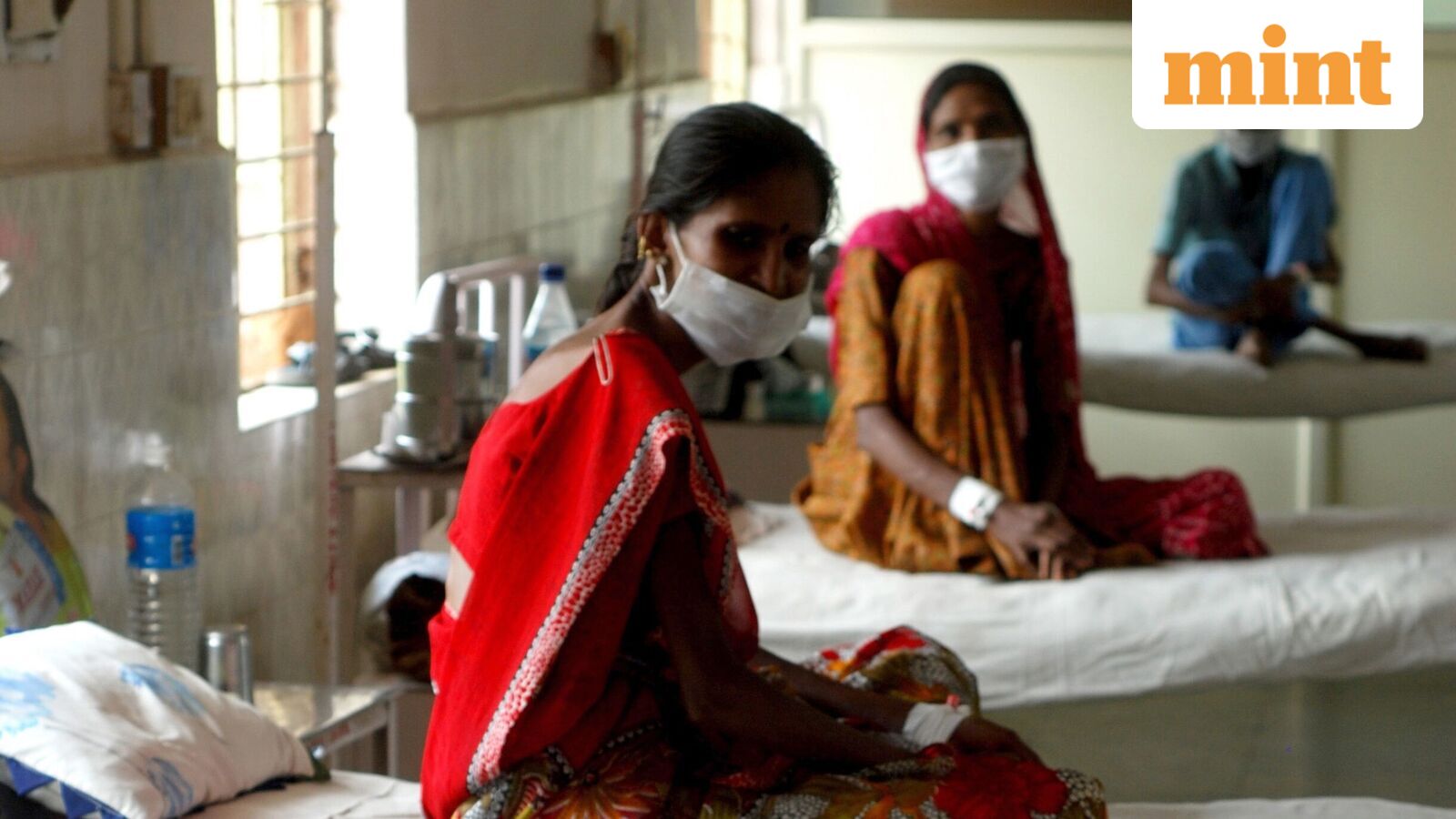Health
India Unveils Regional Food Baskets to Enhance TB Recovery

India is taking significant steps toward improving the nutritional support for tuberculosis (TB) patients by standardizing a regional food basket aimed at enhancing recovery. The initiative, outlined in official documents reviewed by Mint, is part of a broader strategy to address the country’s high TB burden, which saw over 2.6 million new cases diagnosed in 2024. The budget allocated for combating TB in the 2025-26 financial year stands at ₹3,259.26 crore.
The regional food baskets are designed to include locally available, affordable, and high-protein foods such as pulses, soya chunks, roasted peanuts, and chana. For example, the food basket for the Western region features staples like jowar and bajra, while the Eastern region includes parboiled rice and masoor. In the Southern region, peanuts and Bengal gram are emphasized, and the Northern region’s basket highlights wheat and mustard oil.
Addressing nutritional needs is critical in the treatment of TB, as undernutrition significantly increases the risk of developing the disease. Evidence indicates that a proper diet can enhance treatment adherence, reduce mortality rates, and improve long-term outcomes for patients. The Union Ministry of Health and Family Welfare has urged all states and Union territories to adopt this food basket as a reference, ensuring equity, consistency, and nutritional adequacy while allowing for regional variations in food preferences.
Prof. (Dr.) Urvashi B. Singh, Deputy Director General of the Central TB Division, has directed states to implement a revised nutritional food basket as part of the Ni-kshay Mitra initiative. She emphasized that nutritional support for TB patients and their household contacts is essential. “Undernutrition and TB share a bidirectional relationship: undernutrition increases the risk of developing TB, while TB worsens nutritional status due to increased tissue breakdown,” she noted. Dr. Singh added that the new standardization is expected to significantly enhance both nutritional sustainability and treatment outcomes for those affected by TB.
Dr. Soumya Swaminathan, Principal Advisor for the National TB Elimination Programme, highlighted the expansion of the Ni-kshay Mitra initiative to include family members of TB patients. This extension is particularly vital, as close contacts are often undernourished and at higher risk of infection. “The government has therefore extended nutritional support not only to the TB patients themselves but also to their entire households, where adequate nutrition is essential,” she explained.
Swaminathan, who previously served as the Chief Scientist at the World Health Organization, praised the ministry’s guidance, noting that it allows for a focus on local food sources rather than expensive commercial products that may contain excessive sugar. The standardized regional diet, developed by the ministry, aims to provide a nutritional diet tailored to local preferences and availability.
The food basket totals 18 kg and provides 81,000 kcal for TB patients, promoting immunity for high-risk family contacts. It emphasizes the use of affordable, local protein sources, such as 4.5 kg of pulses and 4.5 kg of protein foods, rather than relying on costly supplements. This approach meets the high protein demands necessary for TB recovery and tissue repair.
Healthcare experts view this initiative as a crucial step toward improving treatment outcomes. Shruti K. Bhardwaj, Chief Clinical Nutritionist at Zydus Hospitals in Ahmedabad, stated, “India’s step to develop region-specific, protein-rich food baskets for TB patients is crucial for strengthening treatment outcomes. This initiative respects local food diversity while ensuring equity and cultural relevance.”
The urgency of addressing TB is underscored by recent developments in vaccine research. Earlier, Mint reported that the Drug Controller General of India (DCGI) rejected the emergency authorization for the Serum Institute’s recombinant BCG (rBCG) vaccine for those aged six and older due to inadequate data. The regulatory body has called for further safety and immunogenicity data, highlighting the pressing need for a more effective vaccine. The existing BCG vaccine offers limited protection against pulmonary TB, with its efficacy decreasing significantly after early childhood.
Overall, India’s commitment to developing region-specific food baskets for TB patients represents a significant advancement in public health strategy, aiming to improve recovery rates and overall health outcomes for individuals affected by this serious disease.
-

 World4 months ago
World4 months agoSBI Announces QIP Floor Price at ₹811.05 Per Share
-

 Lifestyle4 months ago
Lifestyle4 months agoCept Unveils ₹3.1 Crore Urban Mobility Plan for Sustainable Growth
-

 Science4 months ago
Science4 months agoNew Blood Group Discovered in South Indian Woman at Rotary Centre
-

 World4 months ago
World4 months agoTorrential Rains Cause Flash Flooding in New York and New Jersey
-

 Sports4 months ago
Sports4 months agoBroad Advocates for Bowling Change Ahead of Final Test Against India
-

 Top Stories4 months ago
Top Stories4 months agoKonkani Cultural Organisation to Host Pearl Jubilee in Abu Dhabi
-

 Science4 months ago
Science4 months agoNothing Headphone 1 Review: A Bold Contender in Audio Design
-

 Top Stories4 months ago
Top Stories4 months agoAir India Crash Investigation Highlights Boeing Fuel Switch Concerns
-

 Sports4 months ago
Sports4 months agoCristian Totti Retires at 19: Pressure of Fame Takes Toll
-

 Business4 months ago
Business4 months agoIndian Stock Market Rebounds: Sensex and Nifty Rise After Four-Day Decline
-

 Politics4 months ago
Politics4 months agoAbandoned Doberman Finds New Home After Journey to Prague
-

 Top Stories4 months ago
Top Stories4 months agoPatna Bank Manager Abhishek Varun Found Dead in Well









